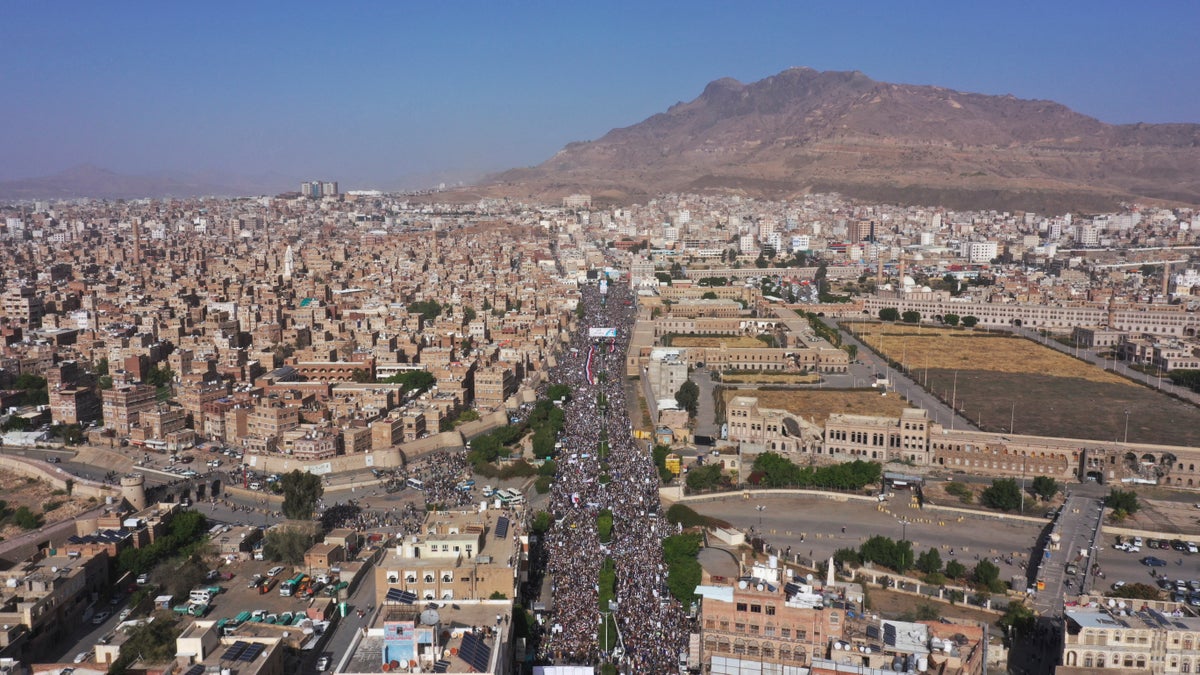
The United Nations said Yemen’s warring parties agreed Tuesday to renew an existing truce for another two months after concerted international efforts.
The already 4-month-old cease-fire has been the longest nationwide ease in fighting since the country's war began six years ago.
The U.N. envoy to Yemen Hans Grundberg said in a statement that the country's internationally recognized government and the Houthi rebels had also agreed to try to arrive at “an expanded truce agreement as soon as possible.”
Yemen’s civil war erupted in 2014, when the Houthis descended from their northern enclave and took over the capital, forcing the government to flee to the south before its exile in Saudi Arabia. A Saudi-led coalition — then backed by the United Sates — entered the war in early 2015 to try to restore the government to power. Since then, the conflict has turned into a proxy war between regional foes Saudi Arabia and Iran, which backs the Houthis.
The truce renewal announcement came hours after an Omani delegation concluded three days of talks with the Houthi leadership, including with the rebels’ chief Abdel-Malek al-Houthi in the capital of Sanaa.
Mohammed Abdel-Salam, the Houthi chief negotiator and spokesman, said on Twitter the talks focused on “consolidating chances of halting the war and lifting the blockade” imposed by the Saudi Arabia-led coalition.
The cease-fire initially took effect on April 2 and was extended June 2. However, there have been offensive actions during recent months.
Both sides have publicly announced that they've bolstered their front-line positions, particularly around the oil-rich city of Marib, which the Houthis have been trying to seize for over a year. There were also shows of power through through military parades featuring thousands of soldiers. The government and the Houthis both claimed to have documented dozens of truce violations on a weekly basis.
But the cease-fire has brought relief for Yemenis who have suffered from a decade of political turmoil and conflict. Around a third of Yemen’s 30 million population has been facing starvation due to the war and a lack of funding for humanitarian aid, according to the U.N. food agency.
Aside from the lull in violence, the truce established two commercial flights per week from Sanaa to Jordan and Egypt, after the country's airport was closed to passenger flights for years. It also allowed 36 vessels carrying fuel into the port of Hodeida over the course of four months. Both Sanaa and Hodeida are controlled by the Houthi rebels.
The truce has also called for opening the roads around Taiz, Yemen’s third largest city, which the Houthis have besieged for years. But the rebels rejected two U.N. proposals to lift the blockade, according to the envoy office. Another item on the agenda is finding a way to pay the country's public servants, many of whom have gone with little or no salaries for years due to the civil strife.
Tuesday's extension fell short of a proposed six-month renewal of the cease-fire, according to a government official. The Houthis had wanted more flights from Sanaa airport and more fuel vessels allowed to arrive in Hodeida to agree on that longer period. The internationally recognized government would not discuss the Houthi demands before the opening of Taiz roads, the official said. He spoke on condition anonymity to discuss internal deliberations.
On Sunday, U.S. Secretary of State Antony Blinken spoke with Rashad al-Alimi, head of the presidential government, to press for the truce renewal. He said the cease-fire “provides the best opportunity for peace in years — we must not let it slip away.”





